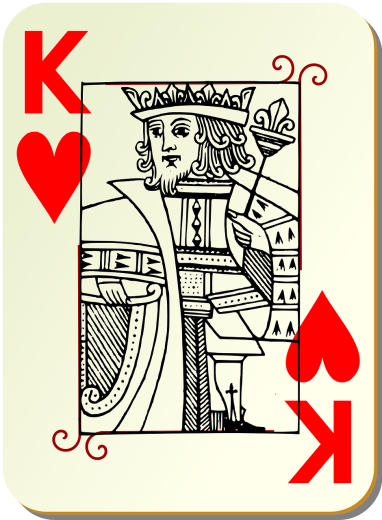Brazil's Gambling History
Overall, betting has been a part of Brazilian culture for centuries. It’s a diverse and dynamic landscape that has adapted to new sports trends, becoming a major ally of entertainment.
To better understand the evolution of the sports betting market in Brazil, it’s essential to examine a timeline of this sector’s development, considering the impact on Gambling and Betting Legislation.
Colonial Period - 1920
Os historiadores afirmam que os europeus trouxeram as apostas para o Brasil ainda no século XVI, introduzindo os jogos de cartas, dados e outros meios de entretenimento.
Já no século XVIII, surgiram as primeiras casas de apostas, que fizeram um grande sucesso juntamente da criação das corridas de cavalos, consagrando-se como o passatempo favorito de muitos pertencentes às classes econômicas mais altas.
Com a crescente popularização dos jogos de azar, em 1892, o barão João Batista Viana Drummond criou o famigerado “Jogo do Bicho” a fim de aumentar a arrecadação do Zoológico mantido por ele naquela época.
A princípio, ao adquirir um ingresso, o visitante ganhava uma carta com um dos 25 bichos da lista. No final do dia, as cartas eram sorteadas e quem estivesse com a imagem do animal sorteado ganhava um prêmio em dinheiro. Essa prática logo se espalhou pela cidade do Rio de Janeiro, e mais tarde por todo o Brasil, existindo até hoje, mesmo que de forma ilegal.
Algum tempo depois, no ano de 1917, o governo criou a primeira loteria nacional nomeada “Loteria Federal”, e rapidamente o estabelecimento converteu-se em um grande fenômeno.
Ainda neste mesmo ano, o governo de Venceslau Brás proibiu a prática de jogos de azar e a criação de cassinos e/ou casas de apostas em todo o território nacional. Entretanto, a prática continuou a prosperar, mesmo que na clandestinidade.
1930 - 1945
In 1934, then-president Getúlio Vargas legalized betting and gambling in Brazil, marking the beginning of the country’s “Golden Age” of casinos.
Throughout this period, casinos boosted tourism and the economy, creating thousands of jobs and attracting visitors from around the world. Gambling became a popular form of entertainment in Brazil, often accompanied by grand spectacles such as orchestras, dance dinners, and performances that captivated audiences.
Games like roulette, blackjack, baccarat, poker, and other bets were popular among Brazil’s elite, who spent many nights in major casinos across the country, particularly in the Southeast.
Among the renowned gambling houses were Cassino Atlântico, Copacabana Palace Casino, Cassino da Urca (all in Rio de Janeiro), Monte Serrat (in Baixada Santista), and Cassino Paulista (in São Paulo’s city center), along with 20 casinos in Poços de Caldas, earning it the nickname “Brazilian Las Vegas.”
At the time, international celebrities such as Albert Einstein, Janis Joplin, Frank Sinatra, Orson Welles, and Walt Disney were drawn to Brazil’s casinos, featuring performances by iconic artists like Carmen Miranda, Emilinha Borba, Dalva de Oliveira, and Grande Otelo.

April 30, 1946
On April 30, 1946, then-president Eurico Gaspar Dutra signed Decree-Law 9,215, prohibiting the practice or operation of gambling and betting throughout the country.
The decree caused thousands of people to lose their jobs, negatively impacting the economy as the government gave up a significant source of revenue.
Later, in the 20th century, during the 1960s and 1990s, the government attempted to legalize and regulate gambling and betting in Brazil, but these efforts did not achieve the planned success.
Today's betting landscape
Even with the prohibition of betting, the market continued to exist illegally, operating outside the law and moving large sums of money every year. To curb illegal gambling, establish clear rules to protect players, and bring this industry into the formal economy, several attempts were made to pass a bill.
The most successful of these was Bill No. 13,756, approved by then-president Michel Temer on December 12, 2018, which authorized betting operations within Brazilian territory and set a five-year period for full market regulation. However, when Jair Bolsonaro’s administration began, the plan stalled and was eventually shelved after the deadline was missed.
In 2023, with the beginning of President Lula’s administration, the agenda was revived as part of the Ministry of Finance’s strategy to increase revenue and fund public services. After months of discussions, the measure was signed into law with vetoes by the President on December 30. Named Law 14,790/23, it taxes companies and bettors, establishes rules for operating the service, and defines revenue-sharing provisions, among other regulations.
What does the law currently state?
Currently, the law allows companies that have already applied for a five-year license in the country to continue operating normally until the end of the regulatory transition period, which will conclude on December 31, 2024. Starting next year, only those that have received approval to operate legally in the country, by paying for a license and complying with regulations, will be allowed to function.
In addition to fixed-odds sports betting, other games that can be offered in the country include crash games, online casinos, slots, among others.
Since discussions on industry regulation began, the Brazilian Institute of Responsible Gaming (IBJR) has strongly supported the creation of clear rules for the betting sector, aiming to protect players, create a sustainable business environment, and contribute to society as a whole.
With all processes formally established and consolidated, Brazil’s betting industry can become a solid entertainment market, generating jobs, boosting the economy, and ensuring a robust structure for responsible gaming, fraud prevention, and the mitigation of crimes like corruption and money laundering, placing players at the center of discussions.

